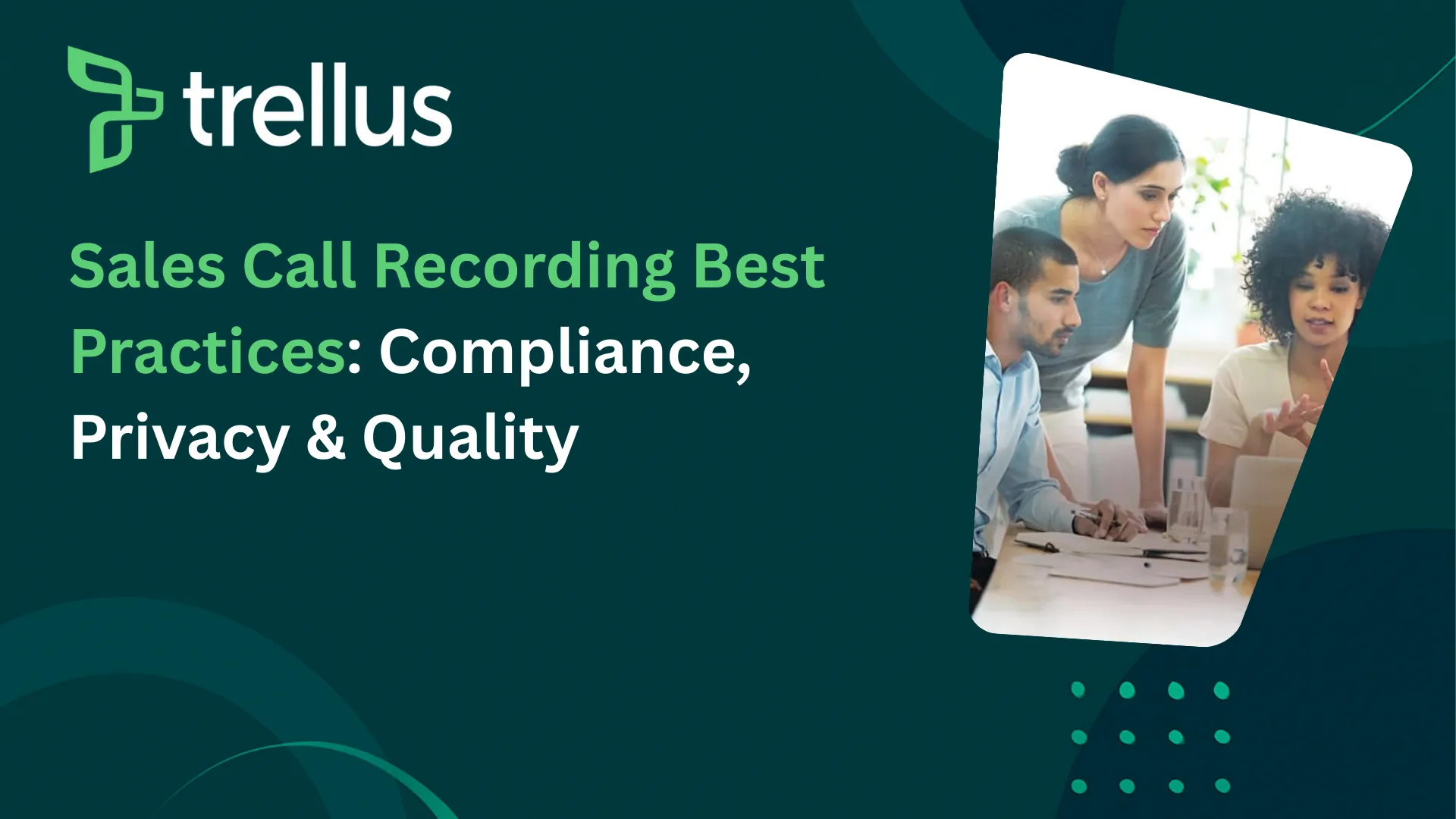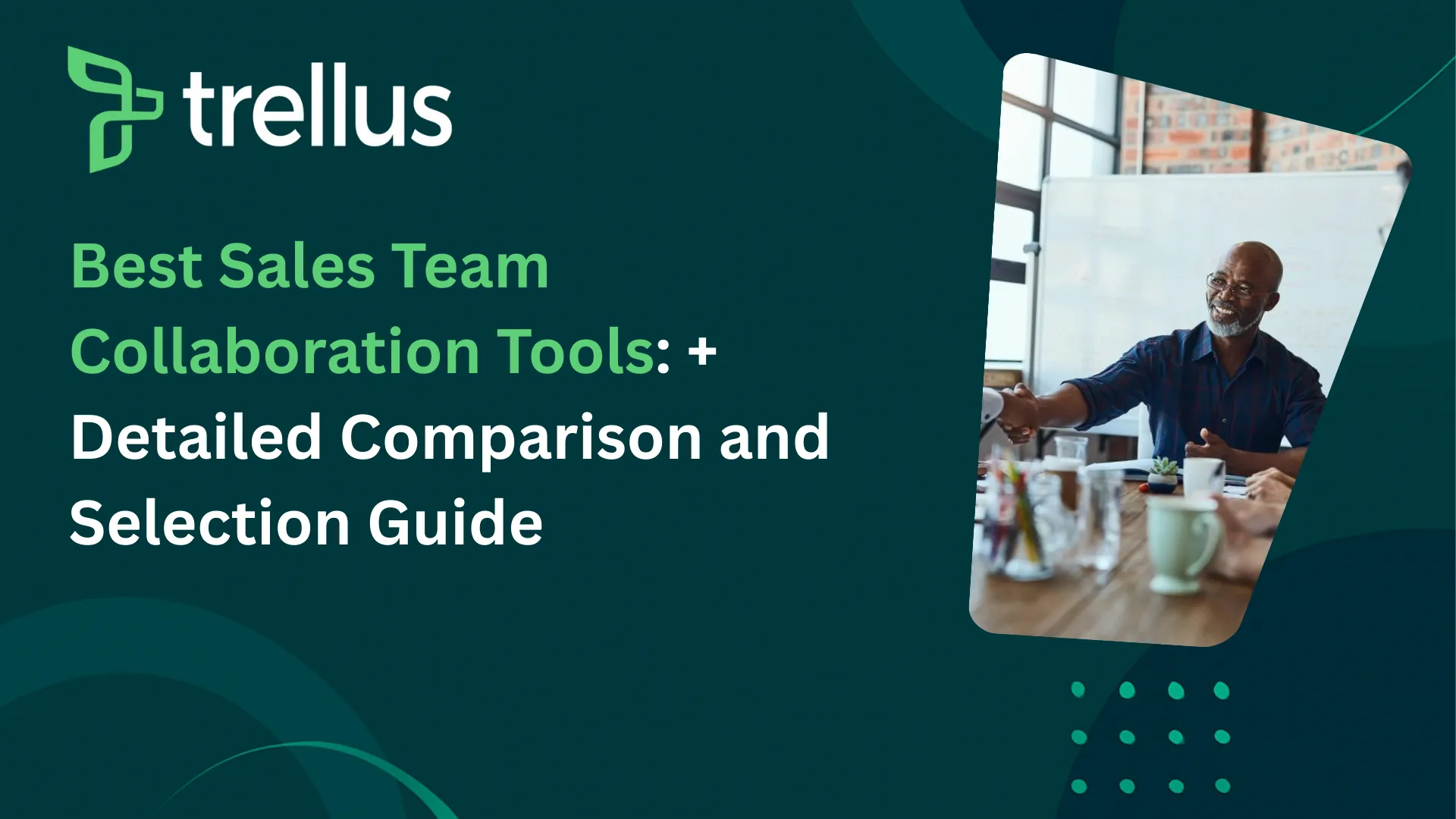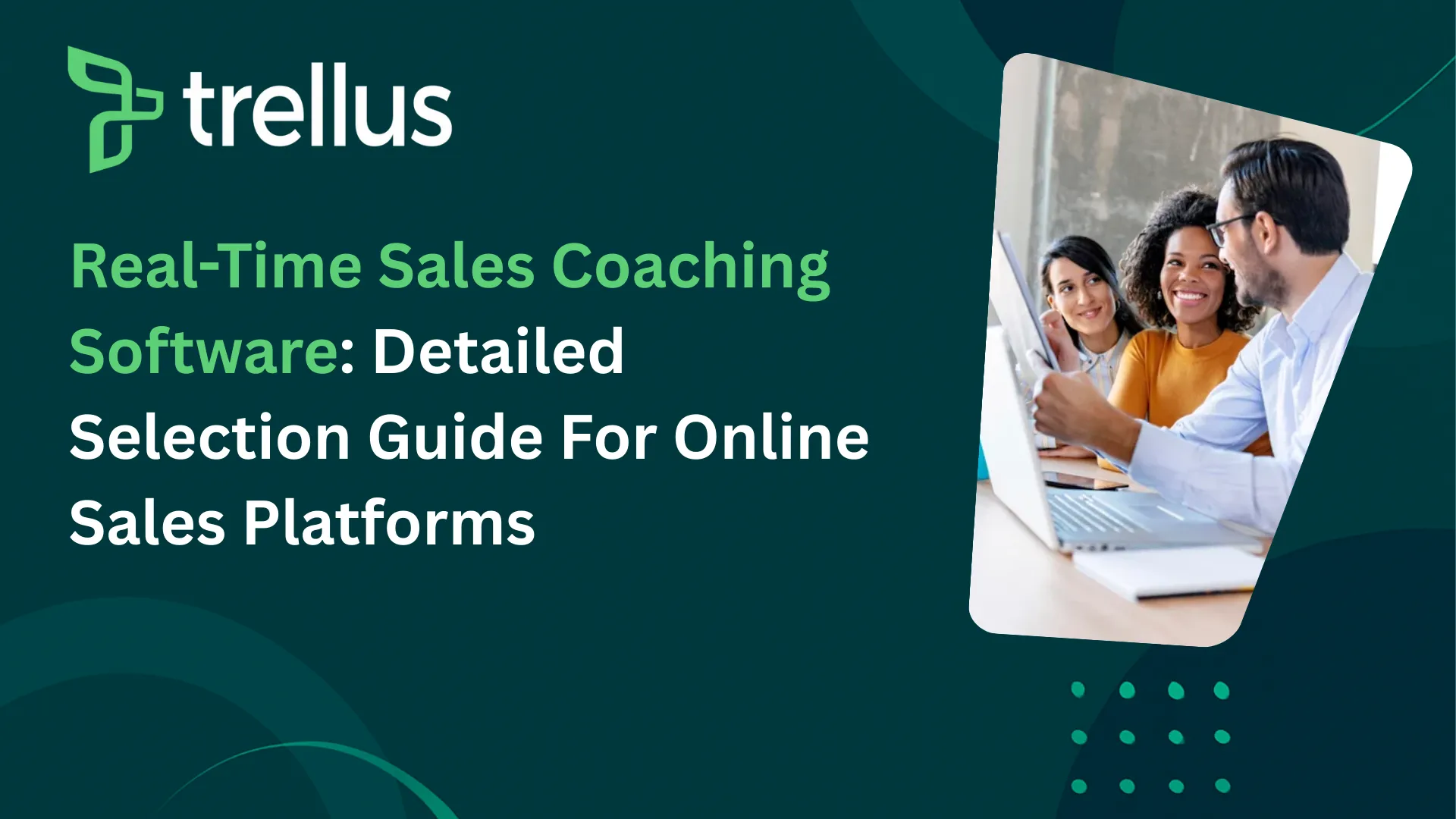
Our Top Picks


The phrase “AI in sales” gets thrown around constantly in 2025, but what does it actually look like in practice? For some teams, it means asking ChatGPT to write a quick email or a catchy subject line before sending it to a lead.
For others, it’s an entire sales engine, powered by platforms like Trellus.ai, that runs outbound campaigns, connects through an embedded parallel dialer, and automatically routes follow-ups based on engagement data.
The contrast is enormous. The first approach is like having an assistant to handle small tasks when you ask. The second is like having a strategic co-pilot ,an autonomous sales agent that continuously learns from performance data and refines your entire sales motion in real time.
Sales teams who understand this difference are the ones driving serious revenue growth. They’re not just “using AI.” They’re evolving around it.
The Two Flavors of AI in Modern Sales
Before diving into the top platforms shaping the market, it’s worth clarifying that not all AI systems are built alike. Sales teams tend to encounter two main categories: unstructured AI models and AI-enabled sales tools ,and knowing which is which can completely change how your team works.
Unstructured AI (LLMs)
Large Language Models like ChatGPT and Google Gemini are powerful creative partners. They understand context, generate natural language, and can brainstorm endlessly. For sales reps, this often translates into drafting outreach templates, crafting cold email sequences, or generating conversation prompts before a discovery call.
However, these tools don’t know your deals, your CRM, or your pipeline. Their intelligence lives in the text layer, not the data layer. That means their value depends entirely on the quality of your input. They’re excellent when you need inspiration, but they don’t drive measurable business decisions on their own.
AI-Enabled Sales Platforms
This is where things start to get exciting. These platforms,like Trellus.ai, Gong, or Salesforce Einstein,connect directly to your data stack. They don’t just analyze text; they interpret pipeline performance, score deals, forecast revenue, and even coach reps through conversations.
They’re not “assistants.” They’re revenue intelligence platforms designed to surface AI-based deal insights, identify risks, and recommend next actions automatically. The goal isn’t to replace human effort,it’s to give that effort sharper focus, higher efficiency, and context-rich insights that would take humans hours to uncover manually.
Best AI Powered Sales Solutions For Sales First Online Businesses
Now that we have a bit of an understanding about how artificial intelligence pans into sales enablement, it’s time to take a closer look at some of the best sales software solutions to date.
Doing so will give you a fair idea of how these programs work against different use cases. And more importantly, it’ll also help you to assess whether the software you’re considering signing up for meets your business requirements, etc.
Let’s get started…
1. Trellus.ai
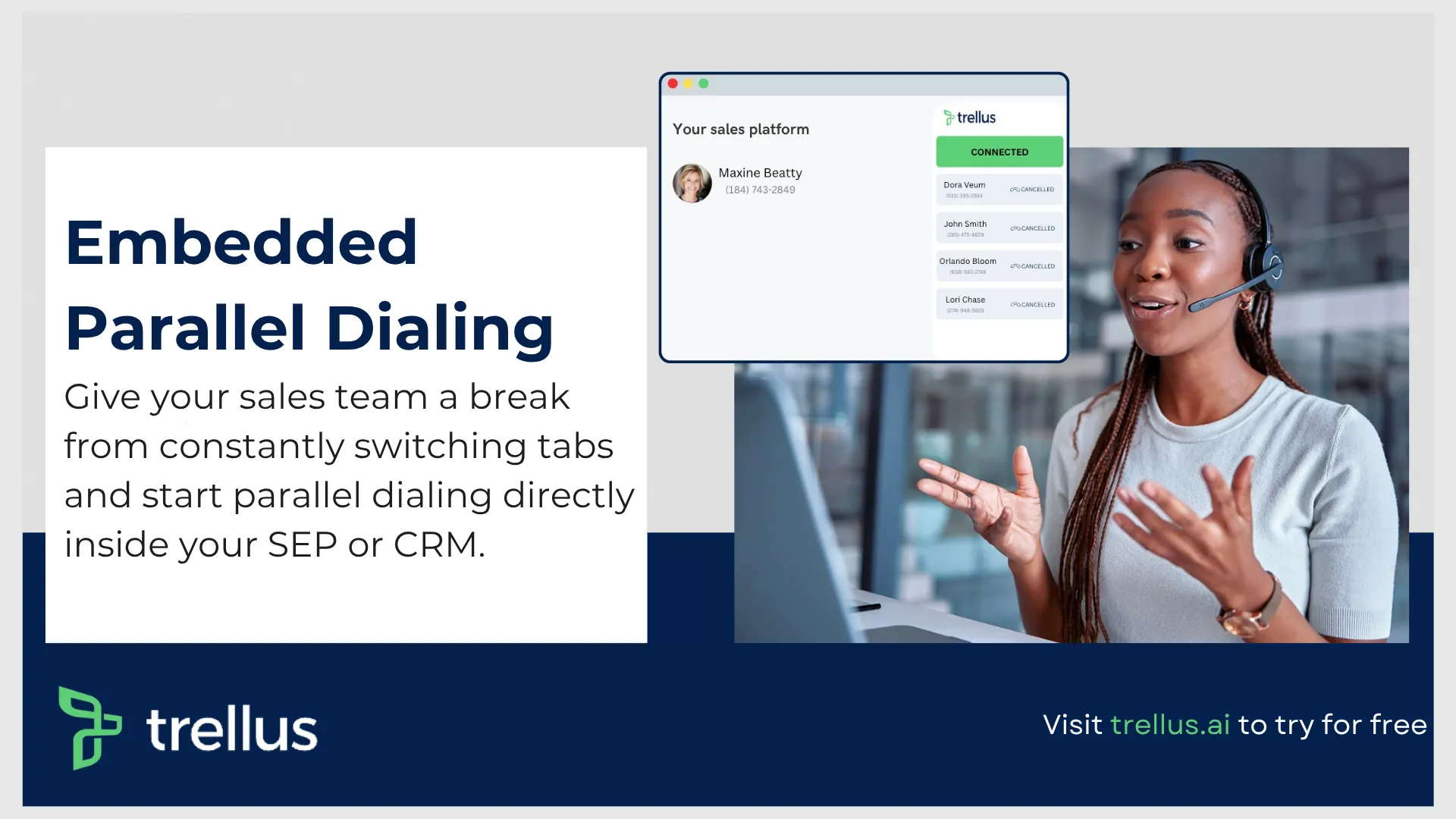
Best For: Sales-first teams running outbound-heavy operations
Trellus.ai represents a new breed of AI-powered sales solution, one that doesn’t just analyze calls but powers them directly. It’s especially valuable for teams that prioritize outbound as their main growth channel. With a parallel dialer built into the platform, Trellus.ai enables reps to connect with multiple prospects at once while AI manages timing, call quality, and queue optimization in real time.
This tool goes beyond call automation. It learns from every interaction and provides AI-based deal insights after each conversation, identifying the prospect’s tone, intent, and conversion probability.
Why it stands out:
- Embedded Parallel Dialer: Calls multiple prospects at once, helping reps double or triple live connections without losing quality.
- Real-Time Conversation Coaching: AI listens in and offers live prompts, helping sales reps handle objections and stay confident mid-call.
- Sales Performance Analytics: Post-call summaries, sentiment scores, and next-step recommendations keep pipelines clean and actionable.
The real beauty of our platform lies in its mix of automation and adaptability. It’s not a cold machine; it’s a sales-first engine designed for people who live in the trenches of outbound every day.
2. Salesforce Einstein
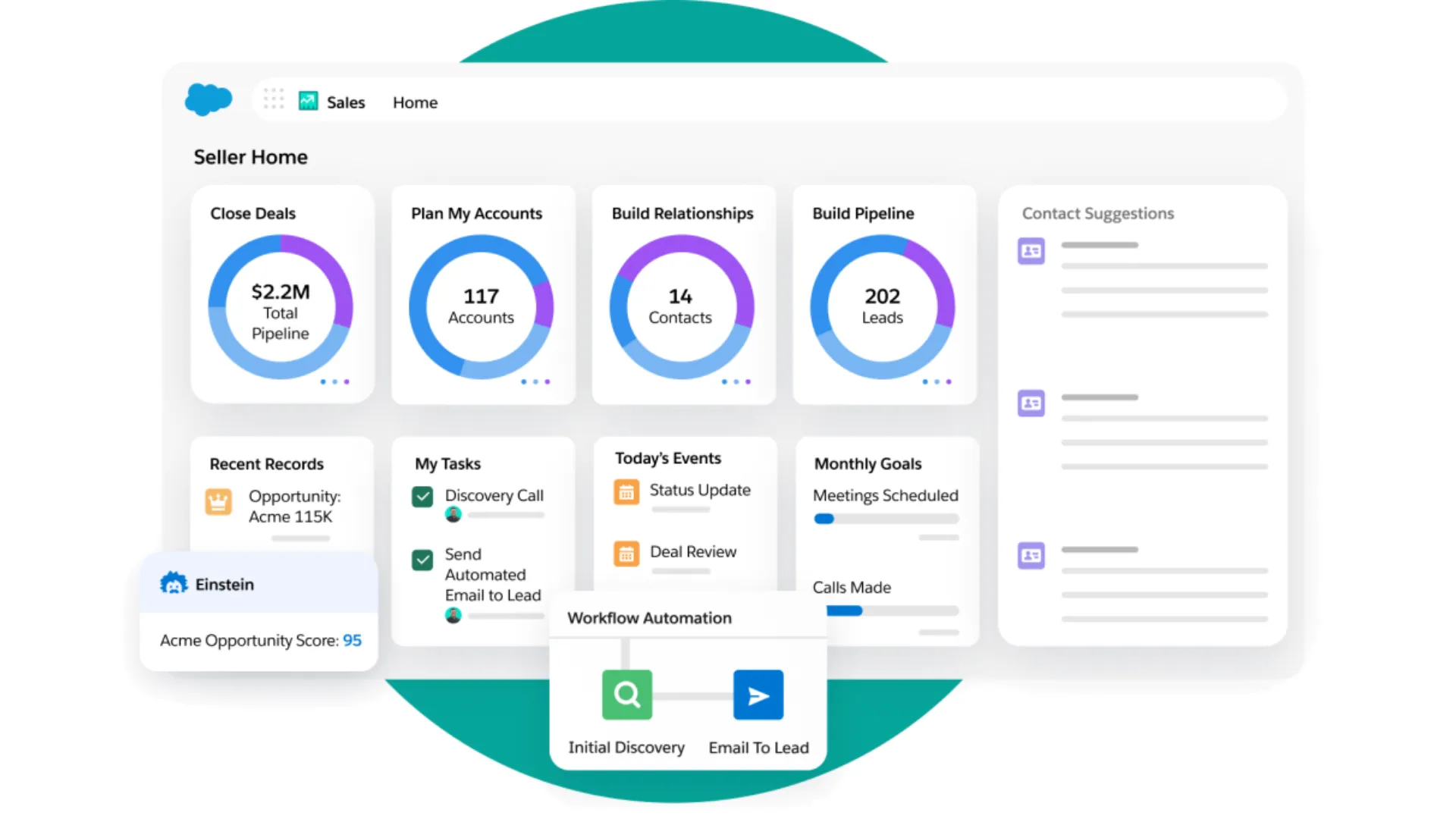
Best For: Large organizations deeply invested in Salesforce
Salesforce Einstein is not just another CRM feature; it’s the AI brain behind the world’s most popular sales platform. It pulls insights from your CRM data and applies machine learning in sales forecasting, lead scoring, and revenue prediction.
For enterprises, Einstein doesn’t feel like an add-on; it feels like an invisible analyst living inside the CRM. It tells you which deals are warming up, which leads deserve priority, and what actions can improve your close rate.
Key features include:
- Opportunity and Lead Scoring: Predictive models rank prospects based on likelihood to convert, helping sales reps prioritize efficiently.
- Activity Capture: Einstein automatically logs emails, meetings, and interactions, freeing teams from tedious admin work.
- Forecasting Intelligence: It provides near-accurate revenue predictions using historical data, pipeline velocity, and seasonality trends.
For companies that already rely on Salesforce, Einstein transforms static CRM data into actionable intelligence. It’s like giving every rep access to a data scientist without hiring one.
3. HubSpot Sales Hub

Best For: Teams that want a smart, all-in-one AI-powered CRM
HubSpot Sales Hub blends accessibility with advanced automation. Over the past year, HubSpot has quietly embedded AI across its entire platform, from email writing assistants to conversation intelligence that summarizes call transcripts and suggests follow-ups automatically.
It’s ideal for teams that want the power of AI without needing a technical background. Every feature feels intuitive, not overwhelming.
Standout features:
- Predictive Lead Scoring: Automatically ranks contacts using behavioral and engagement data, helping reps focus on the most promising leads.
- AI Assistants: Write prospecting emails, create reports, and summarize meetings,all within the platform.
- Conversation Insights: Transcribed calls analyzed by AI to detect trends, objections, and next-step recommendations.
For small to mid-sized sales teams, HubSpot offers an accessible entry point into AI CRM recommendations,a way to add intelligence to daily workflows without enterprise complexity.
4. LinkedIn Sales Navigator
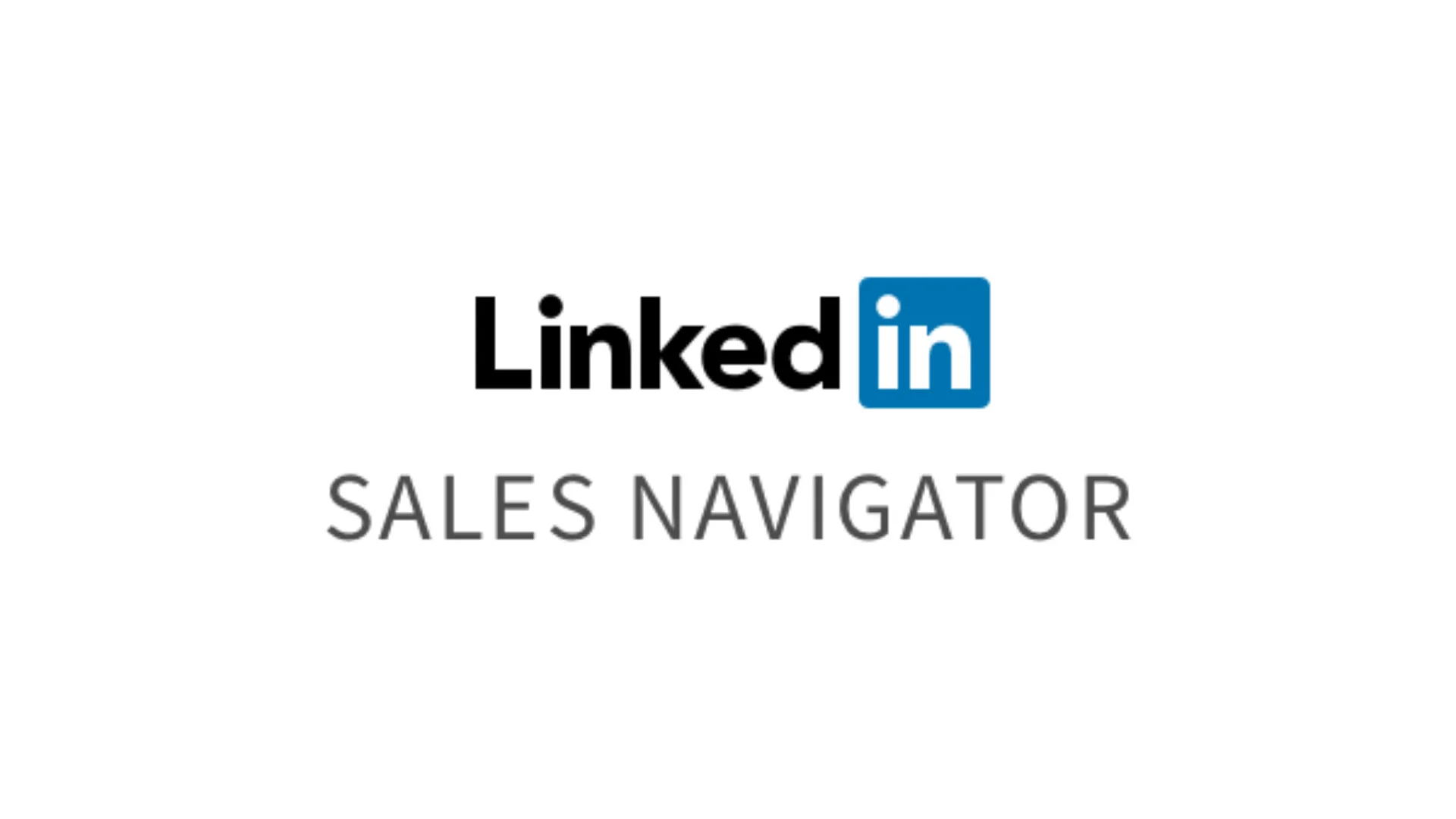
Best For: B2B professionals who build a pipeline through relationships
Few tools are as synonymous with modern prospecting as LinkedIn Sales Navigator. Its biggest strength lies in how it merges LinkedIn’s massive data network with AI lead qualification systems that learn from your search and engagement patterns.
Imagine a tool that doesn’t just show you contacts, it tells you who’s most likely to respond, who’s recently changed jobs, and which companies mirror your best-performing accounts.
Key capabilities:
- Advanced Search Filters: Narrow down ideal prospects based on title, industry, or company growth trends.
- Lead Recommendations: AI finds similar profiles to your top-performing leads.
- Real-Time Updates: Alerts on job changes, company news, or shared connections for timely outreach.
Sales Navigator has quietly evolved into a generative AI in B2B SaaS success story, helping sellers write smarter outreach messages and adapt quickly to shifting buyer intent.
5. Cognism
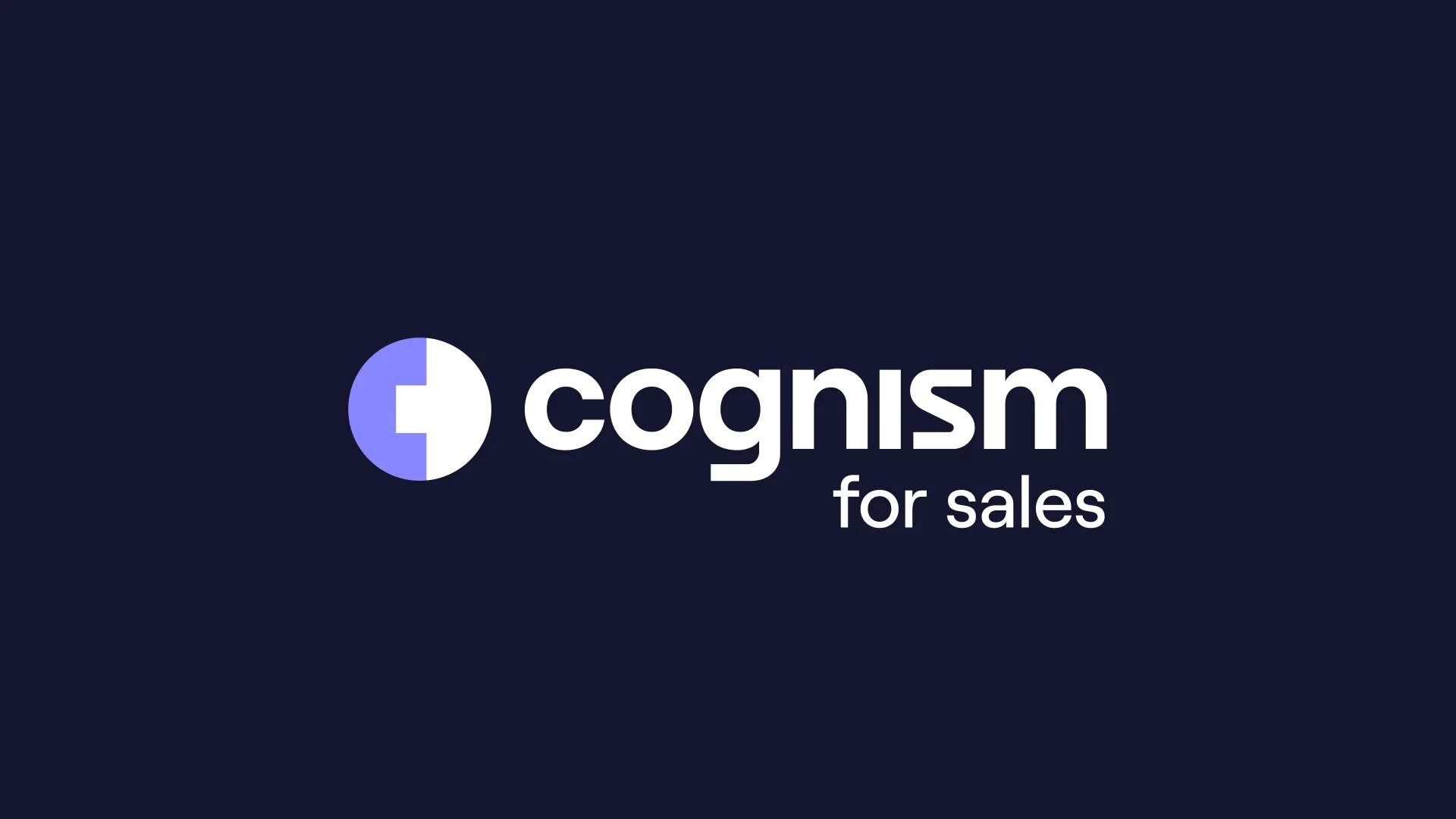
Best For: B2B outbound teams needing accurate, compliant global data
Cognism stands out for one reason: it provides data you can actually trust. Many B2B contact databases are bloated with stale or incomplete information. Cognism solves this with Diamond Data, its AI-verified, phone-validated database that offers accuracy rates above 98%.
For teams operating across different geographies, compliance is another major edge. Cognism adheres to GDPR and CCPA, making it one of the safest ways to scale outbound without legal headaches.
What sets it apart:
- AI-Enhanced Data Verification: Real-time validation through a proprietary machine learning system.
- Intent Data Integration: Detects which companies are actively researching your solution.
- CRM Sync: Seamlessly enriches your system with accurate contact details and buying signals.
6. Apollo.io
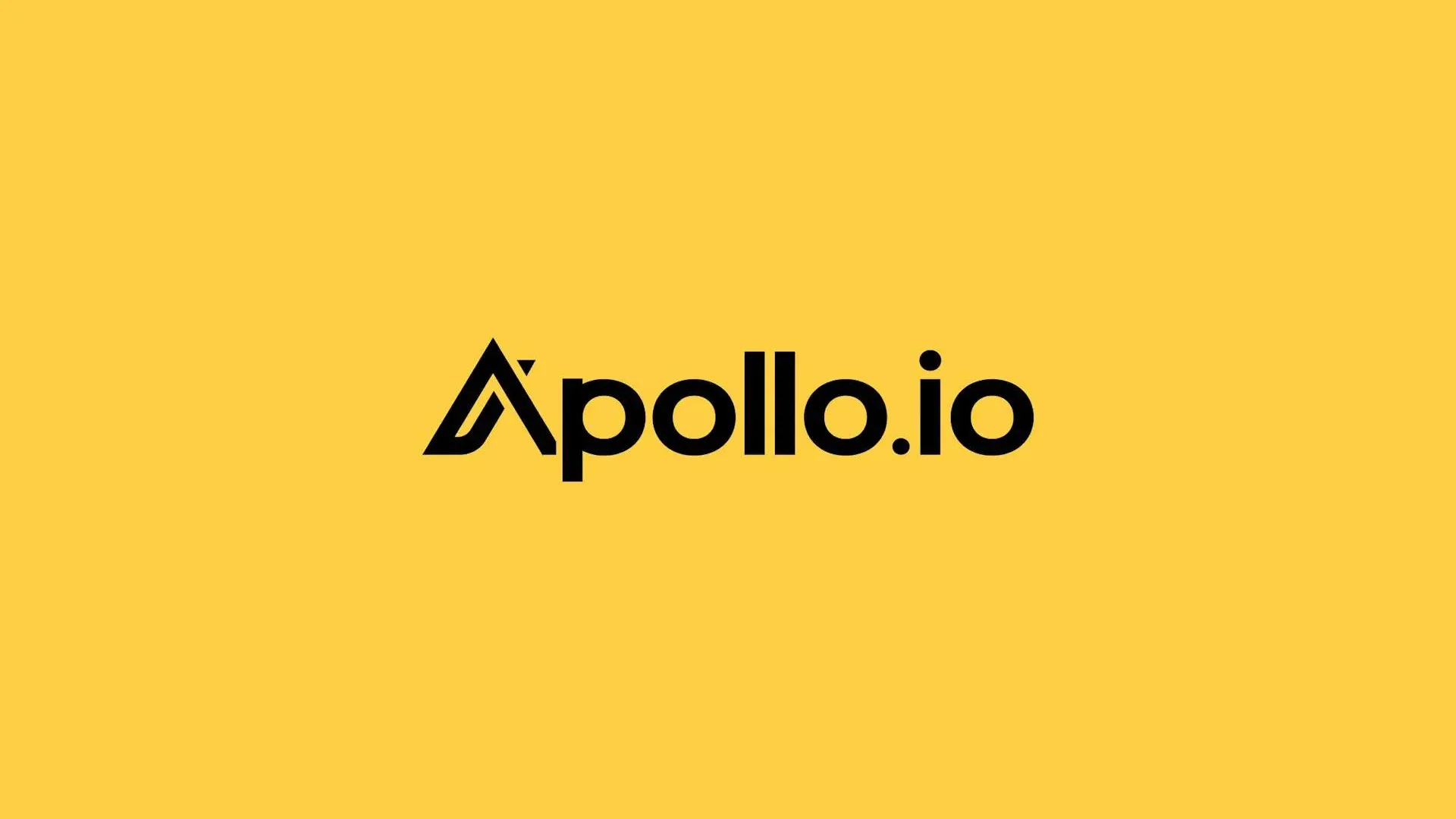
Best For: Outbound sales teams that need precision targeting and automation at scale
Apollo.io has grown into one of the most dominant AI tools for sales reps in the last few years, and for good reason. It combines sales intelligence, workflow automation, and CRM-level analytics into one cohesive platform.
The real magic happens when Apollo’s AI begins identifying patterns in engagement and buyer intent, helping teams build sequences that convert instead of spam. Its machine learning models continuously refine outreach timing, messaging tone, and channel mix to improve connect rates.
What makes it powerful:
- Extensive B2B Database: Access 275 million+ verified contacts across 60 million companies, all filterable by role, industry, and size.
- AI-Powered Writing Assistant: Drafts and optimizes personalized emails and openers based on live engagement signals.
- Intelligent Lead Prioritization: Autonomous agents flag high-potential accounts using predictive analytics.
- Multi-Channel Engagement: Build campaigns that blend email, calls, and LinkedIn tasks seamlessly.
For sales teams that need more than just contact data, Apollo acts like a revenue intelligence platform. It doesn’t just store information; it tells you where to act next and how to act smarter.
7. ZoomInfo
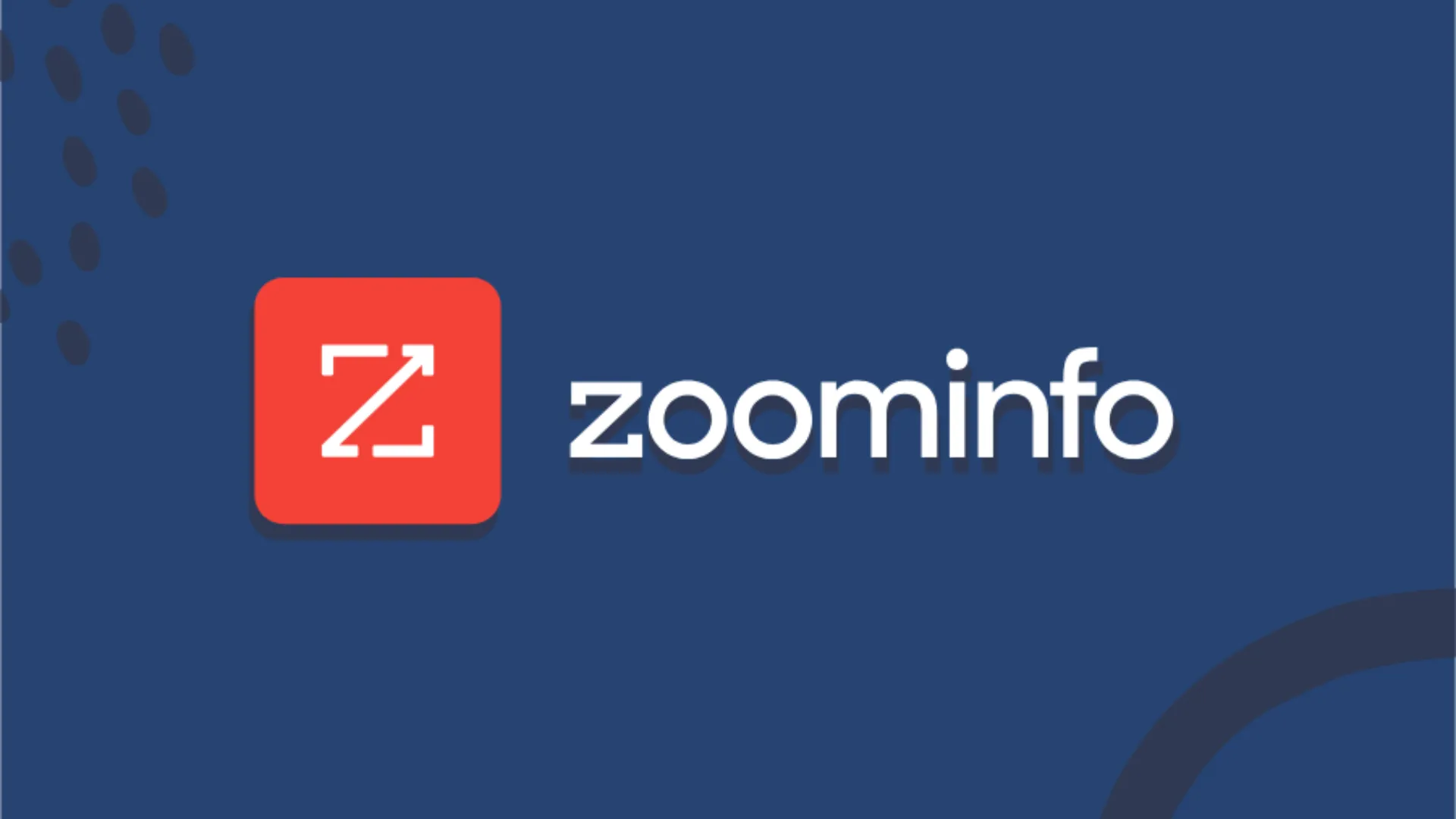
Best For: Enterprise sales operations that rely on deep data and advanced intent analysis
When it comes to data-driven prospecting, ZoomInfo still leads the charge. What sets it apart isn’t just the size of its contact database; it’s the AI models that process and enhance that data.
ZoomInfo’s ecosystem blends buyer intent detection, technographic insights, and automated enrichment, making it one of the most complete AI CRM recommendations for larger organizations.
Core capabilities:
- Comprehensive B2B Database: Millions of verified profiles and company insights.
- Buyer Intent Monitoring: AI analyzes content consumption trends to detect active buying signals before outreach.
- Predictive Data Enrichment: Updates stale CRM entries with current information automatically.
The end result is a system that behaves more like a living, breathing database than a static spreadsheet. It gives your team a competitive edge by telling you who’s ready to talk and what matters to them, before your competitors find out.
8. Seamless.AI

Best For: Small to mid-sized teams that want real-time contact data on a budget
Seamless.AI is built for speed. Instead of relying on a pre-stored data warehouse, it uses a real-time AI search engine to find and verify contact details instantly.
This approach keeps data fresh and highly responsive to specific prospecting needs. For reps who live on LinkedIn, the Seamless Chrome extension is a productivity booster; it pulls validated emails and phone numbers directly from a profile in seconds.
Why teams love it:
- Real-Time Search: AI scrapes and validates data dynamically as you search.
- AI-Driven Verification: Multi-step verification ensures the highest possible accuracy.
- LinkedIn Integration: Build targeted lead lists without leaving your browser.
For smaller teams or individual sellers, Seamless.AI acts as a lightweight AI lead qualification system that doesn’t demand a massive tech stack or a complex setup.
9. Outreach

Best For: Teams that want to orchestrate scalable, personalized outreach
Outreach remains a household name in modern sales engagement, and in 2025, it’s far more than a sequencing tool. It’s now an intelligent operating layer for outbound sales, powered by AI agents that analyze activity patterns and suggest optimal follow-ups automatically.
What makes Outreach special is Kaia, its real-time AI sales assistant. Kaia joins calls, surfaces talking points, and even provides product FAQs on the fly, effectively functioning as a live coach.
Highlight features:
- Automated Sequences: Coordinate communication across multiple channels with zero manual scheduling.
- Kaia AI Assistant: Real-time support during calls and meetings.
- Deal Health Insights: AI flags stalled deals and recommends actions based on historical success rates.
For organizations managing complex pipelines, Outreach bridges automation and human intuition, enhancing sales velocity without sacrificing personalization.
10. Salesloft

Best For: Enterprise-level teams that want to connect engagement, coaching, and forecasting in one system
Salesloft continues to be a powerhouse in digital sales. It’s built for teams that need full visibility into how deals progress, where reps struggle, and which activities directly influence pipeline growth.
Its AI engine, Conductor, orchestrates insights across your entire deal cycle, connecting engagement data with sales performance analytics and forecasting models.
Key strengths:
- Cadence Automation: Manage all outreach sequences from one dashboard.
- Conversation Intelligence: Analyze recorded calls to uncover what top performers do differently.
- Forecast Management: Predict revenue outcomes using machine learning models tuned to your historical trends.
11. Consensus

Best For: Pre-sales and demo teams that want interactive, personalized presentations
Consensus represents a newer wave of AI-driven customer success tools, focused on personalization at scale. Instead of static demos, it creates interactive, self-guided experiences that adapt in real time to the viewer’s preferences.
The AI analyzes buyer behavior across industries and automatically tailors demos to highlight the most relevant pain points and features.
Core advantages:
- Dynamic Personalization: Demos adjust based on audience feedback.
- Content Adaptation: AI modifies narrative flow in real time to maintain engagement.
- Performance Analytics: Deep insights into which demo sections resonate most with each buyer persona.
For teams selling complex products, Consensus feels like having a virtual solutions engineer that works around the clock, ensuring every buyer gets a personalized experience.
12. Zapier

Best For: GTM teams seeking frictionless workflow automation
Zapier might not sound like a traditional sales tool, but in practice, it’s one of the most impactful AI-powered sales solutions for connecting the entire GTM tech stack.
Its intelligent automation engine links your CRM, marketing apps, data analytics, and internal messaging tools, creating a continuous flow of information between systems that usually don’t talk to each other.
Key functionality:
- End-to-End Automation: Connects thousands of tools and removes repetitive manual work.
- Real-Time Syncing: Keeps all your customer and sales data unified.
- Template Library: Pre-built workflows for common sales tasks like follow-ups and pipeline updates.
When you connect Zapier with AI-driven CRMs like HubSpot or Salesforce, your tech stack practically runs itself, freeing reps to focus on conversations and conversions.
13. Gong

Best For: Revenue teams that want deep conversational insights and deal intelligence
Gong continues to redefine revenue intelligence platforms. Every sales call, email, and meeting becomes a data point for its AI to analyze.
The result?
Actionable insights into what drives deals forward, and what stops them cold.
What Gong offers:
- Conversation Intelligence: Records and analyzes all customer interactions.
- Deal Warnings: AI identifies at-risk opportunities based on language patterns and deal activity.
- Forecast Intelligence: Predicts pipeline health using behavioral data, not just CRM numbers.
Gong’s biggest contribution to modern sales is objectivity. It removes guesswork from the sales process, making deal management more data-backed and less instinct-driven.
14. Clari
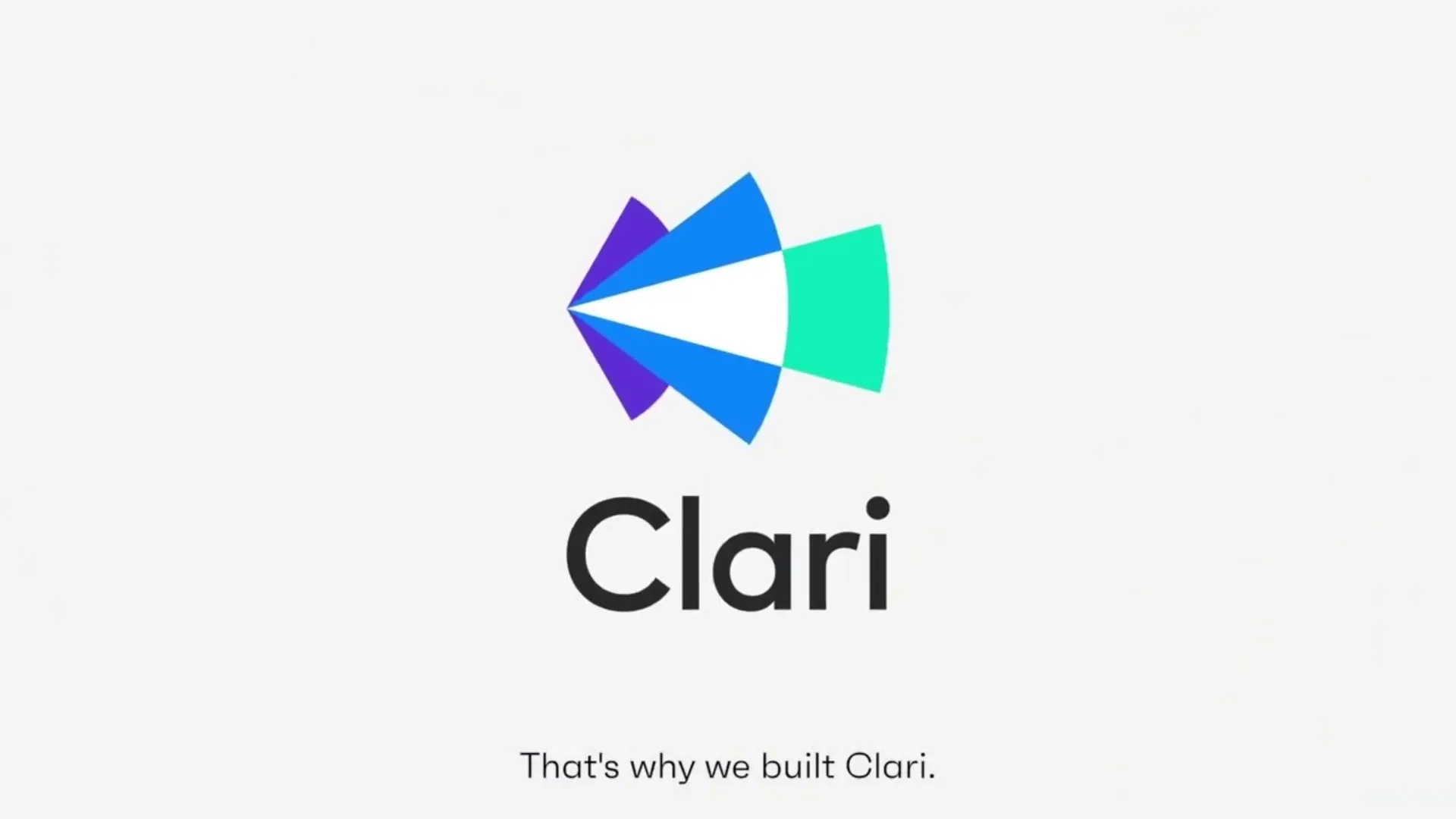
Best For: Revenue leaders seeking clarity in forecasting and execution
Clari is all about control and predictability. It connects your pipeline data, communication logs, and rep activities into a unified view that helps leaders understand exactly what’s happening in their revenue funnel.
Its AI continuously monitors pipeline movement and provides machine learning-driven forecasts that highlight both risks and growth opportunities.
Key capabilities:
- Pipeline Visibility: See every deal’s progress in real time.
- Forecast Accuracy: Machine learning models predict revenue outcomes with uncanny precision.
- Execution Insights: Surface patterns that affect team performance and quota attainment.
Clari is the heartbeat of modern revenue operations, a sales performance analytics platform built to keep leaders proactive instead of reactive.
15. Loopio

Best For: Sales and proposal teams managing frequent RFPs
Loopio brings automation to one of the most time-consuming parts of enterprise sales, responding to RFPs. Its AI engine automatically drafts responses by pulling accurate information from your company’s centralized content library.
It also learns from past proposals, suggesting improvements to tone, clarity, and relevance.
Why it stands out:
- Automated Proposal Creation: Speeds up RFP turnaround with accurate, pre-approved responses.
- Smart Content Suggestions: Learns which answers perform best and recommends them automatically.
- Collaboration-Friendly Design: Real-time editing and comments keep everyone aligned.
For teams that juggle multiple high-stakes deals, Loopio turns what used to be a manual grind into a smooth, AI-driven customer success workflow.
Try One, Or Try Them All!
So, there you have it.
Some of the best sales enablement software that run through AI for better results, increased conversions, and whatnot.
Feel free to sign up for low tier packages for each software to see how it stacks up against your business requirements. From then on, you can transition to a paid plan and onboard your entire team easily.
Good luck!



